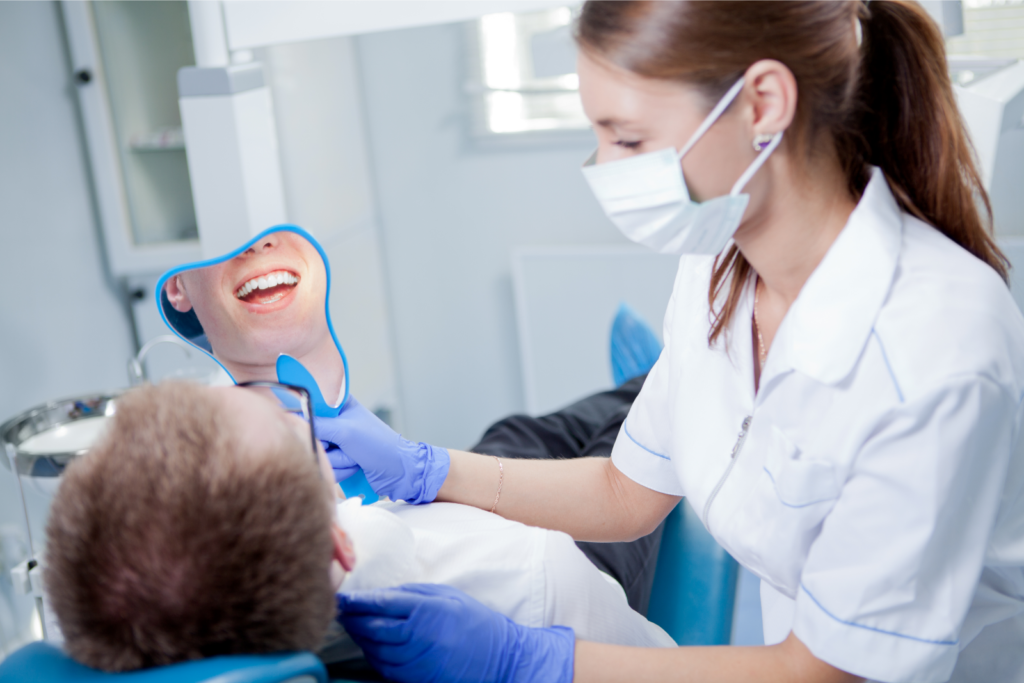
Regular dental check-ups are essential for maintaining good oral health. Yet, many people neglect these appointments, potentially leading to the development of oral issues that can damage teeth and gums. Read on for the eleven alarming signs that should prompt you to visit the dentist right now.
- Persistent bad breath
Bad breath, also known as halitosis, is a common issue affecting people worldwide. Several factors can contribute to this condition, including the consumption of pungent foods, poor oral hygiene, gastrointestinal diseases, diabetes, certain medications, and oral health issues. It’s crucial to note that conditions such as tooth decay and gum disease are frequent culprits of halitosis. If you’re dealing with bad breath, it’s a good reason to schedule a dental visit.
- Bleeding gums
While some might assume that mild gum bleeding during brushing is normal, it can often indicate the early stages of gum disease. If your gums appear tender, swollen, red, and bleed during routine dental care, it’s a clear sign to make that dental appointment.
- Tooth Decay
Cavities, or tooth decay, can progress silently, especially in the initial stages. However, as the decay advances, it can lead to severe toothache. Regular dental check-ups can catch cavities early and provide timely treatment to prevent significant damage.
- Unpleasant taste in your mouth
An unpleasant taste in your mouth can result from various factors. For instance, a dental abscess affecting a tooth can produce an unpleasant taste accompanied by toothache, gum swelling, and bad breath. Treating an abscessed tooth promptly is crucial to avoid complications.
- Toothache
Toothaches are a common oral issue and can have various causes, including gum disease, tooth decay, dental abscess, tooth fracture, and more. Resolving a toothache requires identifying its root cause, which makes scheduling an appointment with a top dentist vital.
- Increased tooth sensitivity
Heightened tooth sensitivity to hot or cold foods and beverages can result from factors like tooth decay, excessive enamel wear, or exposed tooth roots. The pain is often intense but short-lived, lasting only a few seconds. Your dentist can identify the underlying condition and recommend toothpaste to alleviate the pain.
- Loose teeth
Tooth looseness may occur due to injury or advanced gum disease. Dental injuries can be treated by your dentist to secure the affected tooth. However, severe gum disease may necessitate complex treatment, including gum grafts, to save the tooth.
- White patches in the mouth
The appearance of white patches in your oral cavity may indicate oral thrush. This condition arises when Candida fungi overgrow. A weakened immune system, specific medications, and increased sugar consumption are common culprits. Your dentist can diagnose this condition and prescribe antifungal medication for treatment.
- Missing tooth
When you lose a tooth, it’s essential to replace it. Neglecting to do so can lead to neighboring teeth shifting, causing difficulties with eating and potential facial asymmetry. Modern dentistry offers various dental implants to restore missing teeth.
- Problems with dental work
Despite the durability of fillings, crowns, implants, and other dental procedures, chewing can sometimes exert enough force to loosen these fixtures in our mouths. If you notice any of your dental work feeling loose, or misaligned, or experiencing any issues, it’s crucial to consult your dentist for necessary adjustments ASAP. This proactive approach helps prevent potential further complications.
- Constant bad breath
If maintaining good oral hygiene, including brushing twice a day and daily flossing, isn’t leading to fresher breath, there might be an underlying issue. Whether bad breath is merely a symptom or a persistent concern for you, your dentist can offer effective solutions.
The bottom line
These nine signs should serve as clear indicators that it’s time to schedule a dental appointment. Don’t delay seeking professional dental care when you experience these oral health issues to maintain your overall well-being and a healthy smile.




